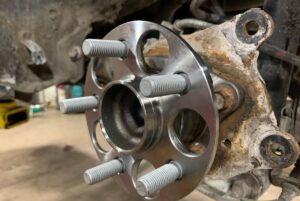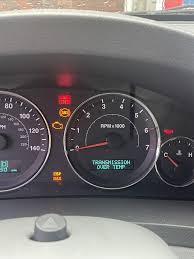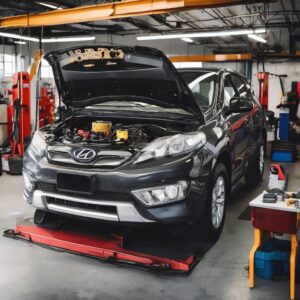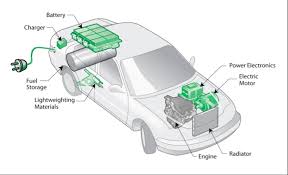Why Does My Steering Wheel Shake When I Brake?
If you’ve ever experienced a shaking steering wheel while braking, you know how alarming it can be. You might wonder if it’s just a minor issue or something more serious. The truth is, a shaking steering wheel is often a sign that there’s something wrong with your vehicle that needs attention. In this blog post, we’ll break down the most common reasons why your steering wheel might shake when you brake and what you can do about it.
1. Warped Brake Rotors
One of the most common causes of a shaking steering wheel while braking is warped brake rotors. Over time, the surface of your rotors can become uneven due to heat and wear. When you press the brake pedal, the brake pads clamp down on the rotors, but if the rotors are uneven, the pads will grab inconsistently, causing vibrations that you feel in the steering wheel.
Solution:
If your brake rotors are warped, they may need to be resurfaced or replaced. This is a job for a professional mechanic who can inspect the thickness of your rotors and recommend the right course of action.
2. Worn Brake Pads
Another culprit could be worn brake pads. If your brake pads are unevenly worn, they might not be making full contact with the rotor, leading to vibrations. Additionally, brake pads can wear down unevenly if they weren’t installed properly or if you have issues with your brake calipers.
Solution:
Replacing worn brake pads is a relatively simple fix. Have a professional check both your brake pads and calipers to ensure everything is functioning correctly.
3. Out-of-Balance Tires
Tires that are out of balance or unevenly worn can also cause your steering wheel to shake when you brake. When your tires are unbalanced, they don’t rotate evenly, causing a wobble that becomes more pronounced when you apply the brakes.
Solution:
Tire balancing or alignment can often resolve this issue. Make sure your tires are properly inflated, regularly rotated, and balanced by a professional.
4. Suspension Problems
Issues with your vehicle’s suspension can contribute to a shaking steering wheel. Worn suspension components like control arms, tie rods, or ball joints can cause excessive movement when braking, leading to vibrations.
Solution:
Suspension repairs should always be handled by a trained mechanic. Replacing worn suspension parts can restore the smoothness of your ride and eliminate steering wheel vibrations.
5. Wheel Alignment Issues
Improper wheel alignment can cause steering wheel vibration, especially when combined with braking. When your wheels aren’t aligned, it puts extra strain on your tires and suspension, which can lead to shaking and wobbling.
Solution:
A wheel alignment is a routine maintenance service that should be done periodically. It helps ensure your tires are making full contact with the road and wearing evenly.
6. Brake Caliper Issues
If your brake calipers are sticking or malfunctioning, they can apply uneven pressure on the rotors, causing vibrations in the steering wheel. This issue is more common in vehicles with a high mileage or those that haven’t had regular brake maintenance.
Solution:
A mechanic can inspect your brake calipers to see if they need to be repaired or replaced. Caliper issues should be addressed immediately to avoid further damage to your braking system.
7. Worn Wheel Bearings
Wheel bearings allow your wheels to spin smoothly, and when they start to wear out, you might notice shaking or grinding when braking. Worn wheel bearings can also cause additional wear on your tires and suspension, compounding the problem.
Solution:
Replacing worn-out wheel bearings is essential for maintaining a smooth ride and preventing more significant issues down the line.
Conclusion
A shaking steering wheel when braking is a clear sign that something is wrong with your vehicle. Whether it’s your brake rotors, tires, or suspension, addressing the problem early can save you from more costly repairs in the future. If you’re experiencing this issue, it’s best to schedule an appointment with a mechanic who can diagnose the problem and get you back on the road safely.
Remember, when it comes to your brakes and steering, it’s always better to be safe than sorry!






